Beyond Looking: Revealing What’s Hidden in Plain Sight
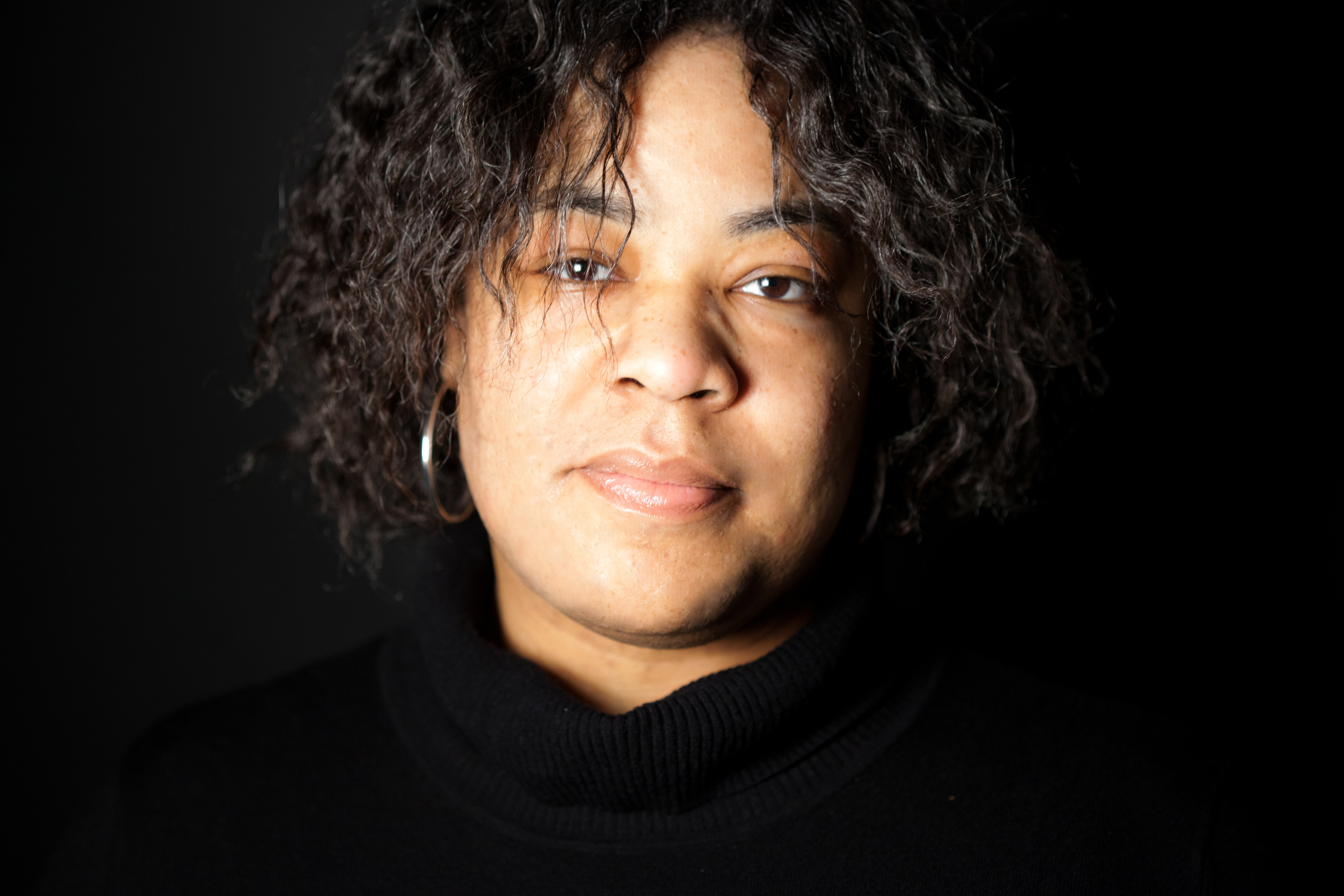 Bearing witness in poetry is about intention, empathy and clarity; the ability to zoom in and out of an emotion or event with a camera’s precision, yet calibrated to the human pulse. I believe it is our charge and bond as poets, and as human beings, to acknowledge and bolster each other as thoroughly as possible. To bear is to be able to carry, to sustain. At our most significant life events, we require a signature, some sort of proof that yes, these people love each other and promise to do so for a lifetime. Someone has accepted a position or calling of great responsibility, standing before others to be sworn in. A precious child has arrived on earth and his or her parents, along with chosen community, have circled in a ritual of dedication to assist in this person’s life journey, agreeing to nurture this child’s spirit and burgeoning potential. And when someone prepares to leave this plane of existence, there is usually a vigil of loved ones, and an official declaration followed by a ceremony honoring that this person was among us and lived.
Bearing witness in poetry is about intention, empathy and clarity; the ability to zoom in and out of an emotion or event with a camera’s precision, yet calibrated to the human pulse. I believe it is our charge and bond as poets, and as human beings, to acknowledge and bolster each other as thoroughly as possible. To bear is to be able to carry, to sustain. At our most significant life events, we require a signature, some sort of proof that yes, these people love each other and promise to do so for a lifetime. Someone has accepted a position or calling of great responsibility, standing before others to be sworn in. A precious child has arrived on earth and his or her parents, along with chosen community, have circled in a ritual of dedication to assist in this person’s life journey, agreeing to nurture this child’s spirit and burgeoning potential. And when someone prepares to leave this plane of existence, there is usually a vigil of loved ones, and an official declaration followed by a ceremony honoring that this person was among us and lived.
Bearing witness is an attempt to honor the magnitude of beauty and struggle on our bewitching planet, to affirm as many manifestations of life as possible for each other. It is one of the most crucial, loving and generous things we can offer to another human being and shouldn’t be taken lightly. As poets, we work in the often inadequate medium of words to glean meaning from and give voice to what David L. Ulin calls “the succession of simple moments, the bedrock bits and pieces of reality by which we compose our days.” We turn to craft to build what we hope will be indelible records of existence that address our collective and inextricable fates in a valiant effort to celebrate, explain, interrogate, foster and lament our interactions with the world and all of its inhabitants.
This is not easy work. In fact, my fellow writing friends and writers for centuries have remarked on how foolish we are. What many people spend their entire lives avoiding because of its challenging nature, we willingly sign up for. We stare at voids and imagine what could be. We run back into the hard places and record what it means to endure and escape, or succumb. We document the transformations and the failures. We plumb depths as often as we seek transcendence. We agree to be small in the enormity of the sublime and risk being consumed by it in order to share whatever the results are—a triumph, a close call, lessons of survival. We cull moments of grace, recognize and banish shame, restore dignity. We sign up to be mirrors of treachery and glory, reflecting everything underneath, above, between and within every surface we encounter, literally and figuratively.
The willingness to get lost and the faith to handle what is discovered as a result is essential not only to bearing witness, but to creating something new. And sometimes when something is familiar, we don’t explore it as thoroughly as we should; it can remain hidden in plain sight. Known but not understood, thus valued. A witness interprets and values what he has seen, far beyond simply looking.
Below are two examples of when craft, experience and spirit meet in the creation of poems that unabashedly bear witness. In the first, I retrace my own process of conceiving and composing a poem. The second is an exploration of another poet’s poem.
The first example comes from what I now see as a turning point in my own work. The summer after graduating from Sarah Lawrence, I received a fellowship to attend the Prague Summer Writing Institute. To walk down completely unfamiliar streets and be immersed in language completely foreign to my ears was both delightful and disorienting. Discovery in every sense of daily life would surely lead to new perspectives and ways of bearing witness to my own journey and the journeys of others.
We visited Terezin Concentration Camp. I had no idea of what to expect. The first thing I saw was this huge Star of David looming out of a bed of roses. For a place that had experienced such a harrowing history, it was so pretty and peaceful. We read bios along the walls of those who lost their lives there. Scientists, housewives, musicians…oh the musics lost in that compound! I’d read many accounts of the Holocaust…as I walked around the empty rooms of this former death camp, I knew I had to respond somehow. I wanted the terror to be immediate to someone who didn’t know what happened here, or who knew and had let it become a numb, inert history—which sets up the possibility of return.
I turned to formalism. To enter something this big, I needed a small container to hold part of this outsized grief. Rita Dove calls form “a welcome cage.” I chose the villanelle because of the repetitive nature of the form, building in meaning and impact like an obsessive lullaby (which always tend to be scary, ironically.)
In terms of content, my mind kept returning to a small photograph that had been in a room that had served as a kitchen. It was a picture of detainees peeling potatoes. How mundane and odd in such a place, was my first thought. Secondly I thought, “how terrible to prepare dinner for your executioners?!”
My reference point for this kind of sick circumstance is slavery and Jim Crow in America: maids cleaning a bathroom they aren’t allowed to use; mammies nursing children being taught to hate her own children—who miss her presence at home due to long, grueling hours; packing the picnic a family might eat at one of the lynchings depicted on postcards, as if attending a sports event…cruelty, like love, needs no translation and is universal in its reach.
I knew that this photograph was the content—the common, repetitive action of peeling potatoes as the metaphor for the vicious end these people were about to face. Old story, new way to view it; a way to remember the ferocity in order to guard against its resurrection. Simple, direct language. Image-driven, quiet so that the violence screams between the lines.
PEELING POTATOES AT TEREZIN CONCENTRATION CAMP
Ribbons of skin pile at our feet;
we count wet orbs like heads.
Beneath the blades, white meat.
Their kitchens are not kosher, or neat.
The knives engrave our dread.
Ribbons of skin pile at our feet.
They will salt these crops, a doomed fleet
torn from the earth’s cold bed.
Beneath the blades, white meat
to be mashed or boiled, a treat
ravished to nothing but shreds.
Ribbons of skin pile at our feet,
flesh carved in dangling sheets—
slice after jagged slice spread
beneath the blades, white meat.
We work under the glare, a street
of eyes gouged and shed.
Ribbons of skin pile at our feet.
Beneath the blades, white meat.
*
This poem needed to be a persona poem as the potato peelers/detainees. Writing outside of ourselves and our experiences fully invites imagination and encourages empathy. This could be as simple as writing from a perspective opposite of our own experiences—perhaps someone of a different race, gender or class background. Science fiction writers dare to go even further, imagining spaceships, life on other planets. On occasion, making the decision to inhabit our art as “aliens” regardless of genre is a way to keep the process surprising and our awareness keen. The empathy required can erect sturdy bridges connecting our humanity, if enough of us are willing to do the grueling work of building them.
Writing this poem was a revelation to me in so many ways. It showed me the importance of being deliberate and listening to what each poem needs to accomplish over any ideas that the ego may have in mind. It made clear how imperative it is to respect a subject’s humanity. Otherwise, a poem can become spectacle without meaning, and come off as gawking rather than bearing witness.
–
Aracelis Girmay’s poem “on kindness,” is a tour-de-force of bearing witness with such a deep consideration, compassion and respect for herself and for her subject matter that packs an emotional wallop without venturing into a cloying sentimentality.
This poet-witness undeniably interprets and greatly values what she has seen, wielding exceptional lines and imagery that go far beyond simply looking at a scene transpiring outside of her window. It is almost cinematic in quality, with jump cuts and flashbacks. She excuses, implicates and forgives herself in the same poem. She juxtaposes her loneliness with the woman’s loneliness in the street. She acknowledges a kind of falling, and this stranger’s fallen war cry, the haplessness of it that indicts everyone –
I heard a woman screaming
about how she was lonely & so lonely
she didn’t know what she’d do, maybe kill
herself, she said, over & over like a parrot
in a cage, a parrot whose human parent
only taught it that one sentence
-until the poem parachutes open into the soft landing that the boy’s quietly heroic gesture provides to this woman in crisis, which inspires the poet and models for her what is possible. This poem begins personal and rooted in a specific world-weariness and sweet melancholy that is ultimately hopeful (the attentive sisters, the mail lady’s greeting), veers into a moment of distress that feels intrusive and breeds resentment, admitting that sometimes the agony of others piled on top of our own agony is too much, then proceeds to avalanche into a breathtaking poetic treatise and tribute to the best in the human spirit.
The devotion to bearing witness is why we still have and return to Rumi’s and Hafiz’s timeless testimonies to being human, thousands of years later. It is why we can’t forget Stanley Kunitz “Passing Through”; Philip Levine’s faithful renderings of his brother’s factory worker life that the writing life saved him from; Marie Howe’s tribute and elegy for her brother in What the Living Do; Yusef Komunuyakaa’s decision to face it all—war, love, despair in his poetry collections with such eloquence and lyrical dexterity. It is Cornelius Eady’s bruised elegy for his father, You Don’t Miss Your Water. It is why we are forever devastated and unable to look away from Lucille Clifton’s first few lines in “jasper texas 1998” for James Byrd’s senseless death, chained and dragged behind a pickup truck by racists: “i am a man’s head hunched in the road. /i was chosen to speak by the members/of my body.” It is Sharon Olds’ compassionate, deeply self-aware and astute farewell to her ex-husband and their way of life together after many years in Stag’s Leap; the intergalactic reach yet earthbound realness and radiance of Tracy K. Smith’s Life on Mars.
We affirm and grant each other worth through paying close attention, selectively using the craft tools we have available to, as poet Beckian Fritz Goldberg writes, “generation after /generation, speak to the broken horse / of the human heart.”
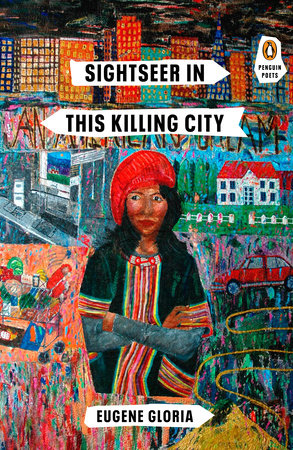
 Today we are pleased to feature author Stan Sanvel Rubin as our Authors Talk series contributor. In this podcast, Stan discusses two of his poems, “Entre Des Etrangers” (the meaning of which is “Between Strangers”) and “Tickle.”
Today we are pleased to feature author Stan Sanvel Rubin as our Authors Talk series contributor. In this podcast, Stan discusses two of his poems, “Entre Des Etrangers” (the meaning of which is “Between Strangers”) and “Tickle.” Past contributor Barbara Crooker was featured on The Writer’s Almanac with Garrison Keillor. Check out their site
Past contributor Barbara Crooker was featured on The Writer’s Almanac with Garrison Keillor. Check out their site  This Saturday June 17th is the annual Juneteenth Valley of the Sun Festival. The Juneteenth festival is a state holiday celebrating the end of slavery in the United States. This one day free festival will be held at Eastlake Park from 4-9PM and features guest speakers, art, music, dance, sporting events, and vendors.
This Saturday June 17th is the annual Juneteenth Valley of the Sun Festival. The Juneteenth festival is a state holiday celebrating the end of slavery in the United States. This one day free festival will be held at Eastlake Park from 4-9PM and features guest speakers, art, music, dance, sporting events, and vendors.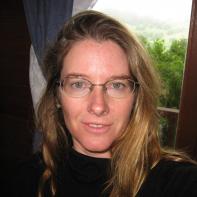
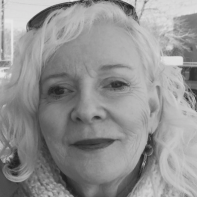 Today we are pleased to feature author Kate Fetherston as our Authors Talk series contributor. Kate first discusses the poem “Particles, Waves, Hello, Goodbye” which was first published in Issue 18 of Superstition Review.
Today we are pleased to feature author Kate Fetherston as our Authors Talk series contributor. Kate first discusses the poem “Particles, Waves, Hello, Goodbye” which was first published in Issue 18 of Superstition Review.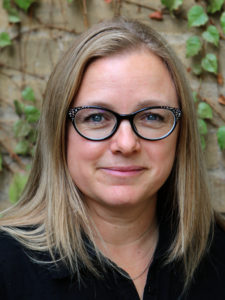
 Four Chambers present’s their latest book release, a collection of poems entitled “Ms. X’s Ocean” by Elizabeth McNeil. THe event takes place Saturday, February 18th, 2017 at 7 pm at the Hive 2222 N 16th St, Phoenix, AZ 85006. This event is free and open to the public. Parking is available along Cypress St. or surrounding neighborhoods. For more information visit their
Four Chambers present’s their latest book release, a collection of poems entitled “Ms. X’s Ocean” by Elizabeth McNeil. THe event takes place Saturday, February 18th, 2017 at 7 pm at the Hive 2222 N 16th St, Phoenix, AZ 85006. This event is free and open to the public. Parking is available along Cypress St. or surrounding neighborhoods. For more information visit their  Bearing witness in poetry is about intention, empathy and clarity; the ability to zoom in and out of an emotion or event with a camera’s precision, yet calibrated to the human pulse. I believe it is our charge and bond as poets, and as human beings, to acknowledge and bolster each other as thoroughly as possible. To bear is to be able to carry, to sustain. At our most significant life events, we require a signature, some sort of proof that yes, these people love each other and promise to do so for a lifetime. Someone has accepted a position or calling of great responsibility, standing before others to be sworn in. A precious child has arrived on earth and his or her parents, along with chosen community, have circled in a ritual of dedication to assist in this person’s life journey, agreeing to nurture this child’s spirit and burgeoning potential. And when someone prepares to leave this plane of existence, there is usually a vigil of loved ones, and an official declaration followed by a ceremony honoring that this person was among us and lived.
Bearing witness in poetry is about intention, empathy and clarity; the ability to zoom in and out of an emotion or event with a camera’s precision, yet calibrated to the human pulse. I believe it is our charge and bond as poets, and as human beings, to acknowledge and bolster each other as thoroughly as possible. To bear is to be able to carry, to sustain. At our most significant life events, we require a signature, some sort of proof that yes, these people love each other and promise to do so for a lifetime. Someone has accepted a position or calling of great responsibility, standing before others to be sworn in. A precious child has arrived on earth and his or her parents, along with chosen community, have circled in a ritual of dedication to assist in this person’s life journey, agreeing to nurture this child’s spirit and burgeoning potential. And when someone prepares to leave this plane of existence, there is usually a vigil of loved ones, and an official declaration followed by a ceremony honoring that this person was among us and lived.